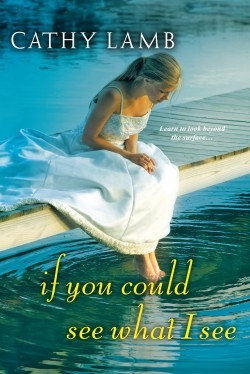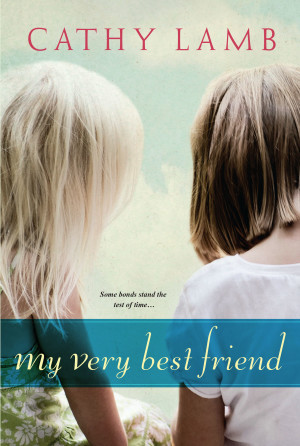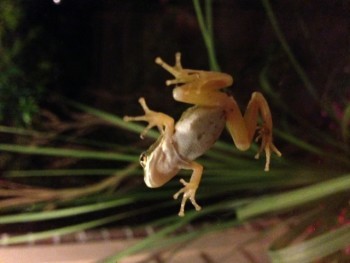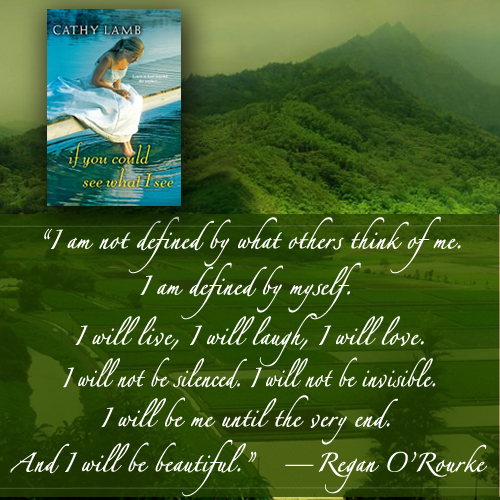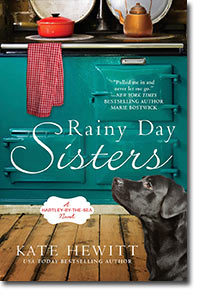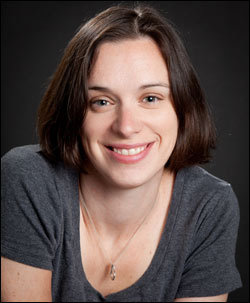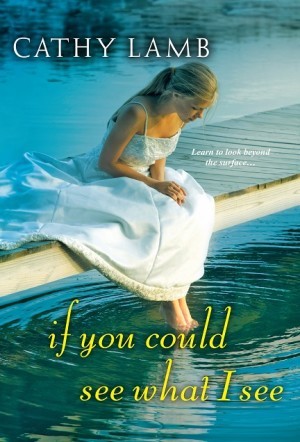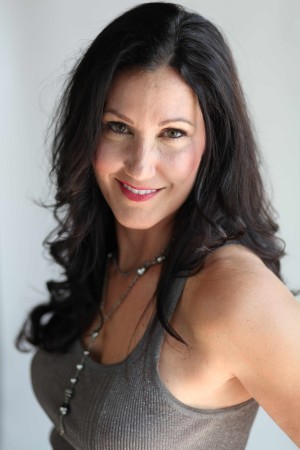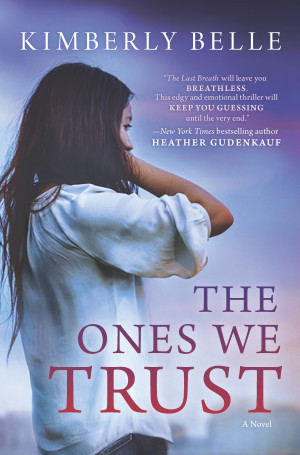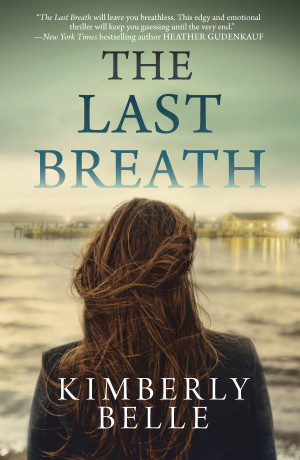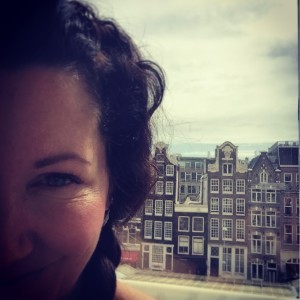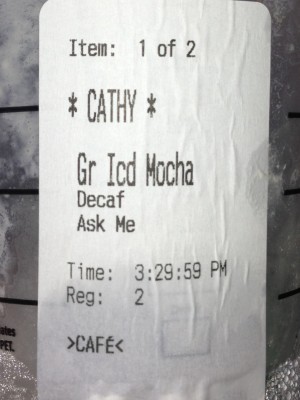Cathy Lamb's Blog, page 51
September 21, 2015
USA Today, Chatting With My Cat, And Writing Love Scenes
Cathy Lamb’s very best friend keeps her busy chatting while she’s writing
By Joyce Lamb September 20, 2015 8:00 am
Cathy Lamb, whose My Very Best Friend is out now, balances “cat chatting” with writing romantic scenes.
Those of us with cats who also write books know exactly what she means by that. (Cathy, incidentally, is not related to me, though we would obviously make awesome relatives, seeing as how we both have chatty black cats.)
Cathy Lamb: My black cat, KC, keeps me company while I write my novels. As you can see by her glasses, she is very smart and serious, dedicated to her role as Cool Family Cat.
She often sits and stares at me while I type away on my laptop. When she wants to share her wisdom, she meows at me and I meow back. She continues this meowing conversation for quite a while sometimes. If I do not meow back, she gets her feelings hurt, I’m sure of it.
It is rather hard to concentrate on writing while meowing, especially when I am writing a love scene, but I try to be brave and bold and persevere through having a cat chat.
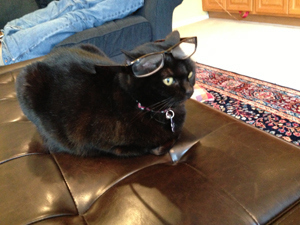
I often use animals in my books. In If You Could See What I See, my character Meggie O’Rourke has a nephew who loves animals. His mother will not allow any more animals in their home as they already have a small zoo, so the nephew, Regan, starts to bring them to his indulgent Aunt Meggie in her tree house. Below is a short excerpt about Pop Pop, a naughty dog who always seems to be grinning; Mrs. Friendly, a male lizard; and Jeepers, a cat with social anxiety problems.
On Tuesday night, with Pop Pop bouncing beside me, grinning, in trouble because he’d had another fight at doggy day care and was on probation again, I came home to a hamster home complete with colorful tubes and a hamster running on a wheel. A bag full of hamster stuff like food and shavings for the cage sat beside it.
Regan had written a note: “This is a nice girl hamster. My friend, Seth, is allergic to it, so his parents are making him give her up. Her name is Ham the Hamster. I think you’ll like her because she’s a good listener and curious. I’ll come and visit. Seth wants to come, too.”
I bent down and peered into the cage. Ham the Hamster was running with all her might on a wheel. I don’t know why. “You’re going to tire yourself out,” I told her. She took no notice.
I carried her in and put her by Mrs. Friendly, the lizard. Mrs. Friendly stuck his tongue out.
Pop Pop darted in and went to play with Jeepers. Jeepers didn’t want to play. I could hear him hissing.
I had a hissy cat, a weird dog on probation, a bored lizard, and a hamster that ran for no reason…
—
My latest novel is My Very Best Friend. This is the best way to sum it up:
An old stone cottage in Scotland.
An overgrown garden. A man in a kilt.
Lingerie bike riding at midnight. Tea and crumpets.
Two best friends.
One is missing.
Find out more about Cathy and her books and connect with her through cathylamb.org.
MORE ON HEA: Check out an excerpt from Cathy’s ‘My Very Best Friend’
EVEN MORE: Check out other romance authors and their pets
September 14, 2015
On Relating To A Frog
Can you relate to this frog? I can. I was watching her the other night on our window.
She climbs up, she clings. She hopes she doesn’t fall.
She goes up, no good, goes down, no good, to the side, no good, then she just hangs there.
Waiting.
Clinging.
Thinking.
Hoping the next decision is the best one…Yep. I get this frog.
September 8, 2015
Chick Lit Central And Imaginary Chick Lit Friends
Hello everyone! I have copied and pasted an interview I recently did with Chick Lit Central.
I was asked to come up with my five favorite Chick Lit friends. That didn’t take a lot of thought on my part. I knew exactly who I’d want to hang out with…
(Check out Chick Lit Central. I love this website. http://www.chicklitcentral.com/)
Chick Lit Central
A place where people can discuss chick lit books, read reviews, meet authors and win books!
Tuesday, September 8, 2015
Chick Lit Central: One of the options we gave authors for “Friendship Month” was to share which Chick Lit characters would be their best friends. Cathy Lamb took us up on that challenge. Her latest novel has a fitting title for this month, as it is called My Very Best Friend.
Chick Lit Central: Cathy, who are the top five Chick Lit characters I’d want to be friends with?
Cathy Lamb: Well now. That’s not so hard to choose.As a writer who spends a lot of time alone, fiddling around with my daydreams, talking in my head to characters as if they are real people, who eats too much chocolate and drinks too much coffee, I would have to say…
Sally and Gillian Owens of Practical Magic by Alice Hoffman.
I love magic. I grew up on the Narnia stories and Practical Magic was an excellent adult extension without the lion and the talking beavers. If I hung out with Sally and Gillian and their aunts long enough maybe I could learn some spells and curses. It’s what I really need in my life: A tad bit of magic.
Cannie Shapiro of Good In Bedby Jennifer Weiner.
Cannie had a lot of wisdom. She’s the type of best friend you could stay up with all night and eat popcorn and watch funny movies and share all your secrets, and she would share hers, and then if you didn’t see each other for ten years, you could have another night of popcorn/secret sharing and you would still be best friends and everything would feel exactly the same in the relationship and no one would have spilled the other’s secrets even if a dragon was threatening to breathe fire upon you unless you told.
Kate Reddy of I Don’t Know How She Does it by Allison Pearson.
As a mother of three who works full time and has for years, I related to Kate. I laughed out loud at her complicated and semi – desperate thought processes – how to manage work and home and housework and kids and a husband, all at once – because I’ve had them so often myself.
And that scene when she’s standing in front of a bunch of egotistical men at a meeting and doesn’t realize that her blouse is see through and her bra is red?
Hilarious.
Bridget Jones of Bridget Jones’ Diary by Helen Fielding.
Who could pass up the late night dinners and city lights, the fast and furious conversations with her friends, the laughter, the craziness, the edge, the honesty? The granny panties? My life in suburbia could use a lift and some excitement. And I’ll take Colin Firth, too. Duh. Of course I’d take Colin Firth.
Andrea Sachs of The Devil Wears Prada by Lauren Weisberger.
I would want to be friends with Andrea before she left Vogue. I mean, well, not Vogue. The nameVogue is not in the book, but we all know that little secret is out of the bag. Anyhow, I would want to go to work with Andrea for one week and see how a magazine is put together. I’d want to learn about fashion and style because I know zero about it. Jeans and sweaters are good enough for me, but still. So interesting! But no more than a week at work with Andrea because I couldn’t stand her boss.
Thanks to Cathy for visiting with us today and to Kensington for the book to share with our readers.
We’ve been hearing rave reviews for this book and are excited to feature Cathy today and share a copy with one lucky reader anywhere in the world, thanks to Kensington. (See below for rafflecopter link.)
A short and sweet synopsis of My Very Best Friend:
An old stone cottage in Scotland.
An overgrown garden. A man in a kilt.
Lingerie bike riding at midnight. Tea and crumpets.
Two best friends.
One is missing.
How to win: Use Rafflecopter to enter the giveaway. If you have any questions, feel free to contact us. If you have trouble using Rafflecopter on our blog, enter the giveaway here. http://www.chicklitcentral.com/2015/0....
Cathy Lamb lives in Oregon. She spends a lot of time daydreaming. She has a wild imagination. Cathy is a bad skier and does not like to clean the house. Her husband says she “cooks by fire alarm.” As in, when the fire alarm goes off, that’s when she remembers to take the dinner out of the oven.
She is working on her tenth novel. Her previous novels include: What I Remember Most, A Different Kind Of Normal, Such A Pretty Face, and The Last Time I Was Me. Visit Cathy at her website, Facebook, and Twitter.
If You Could See What I See $2.99
Hello friends,
If You Could See What I See is on sale on Amazon Kindle for $2.99. Kindle Unlimited, Free.
I so hope you like it. Write to me and let me know. Love to hear from you.
Here’s a quote from grandma Regan O’Rourke:
September 2, 2015
10 Reasons Why Planting A Garden Is A Lot Like Writing, Minus The Beer, Plus The Worms
(Reprinted from my interview with Tamara Welch of Traveling With T, wonder woman and book addict. https://travelingwitht.wordpress.com/....)
I love writing and I love gardening, though I am, at best, a beginning gardener who crosses her fingers a lot and hopes she doesn’t kill everything like a human tornado. I spend a lot of time at my patio table writing my novels on my laptop, slamming down coffee, eating too much chocolate, and muttering, so to have a pretty garden is important to me.
Also, the hummingbirds and butterflies flying around the flowers calm me down when I tell myself I am, and I quote, “The worst writer on the planet Earth, also including Pluto and Neptune and all space aliens.”
Writing and gardening have some commonalities, though writing doesn’t generally involve worms, and gardening does not generally involve making love in a tree.
My thoughts on nurturing a garden, as you would nurture a book…
1. In a garden, like writing, first you have to pull up the weeds. The weeds are the asinine ideas you think of for your next novel when you’re alone at two in the morning and you have eaten too many chocolate chip cookies and are on a sugar high. Sugar highs produce weeds. Don’t use those bizarre – o ideas.
2. Once you have an idea you have to mix in a lot of yummy dirt. Yummy dirt is what worms like to eat. You should not be eating it. That means you have to get the wheelbarrow that always leans irritatingly to the right, order a bunch of dirt from some dirt place that sits in your driveway like a mountain of misery, and add it to the existing dry and depleted soil.
Once the yummy worm dirt is there, it will help produce more good ideas.
At least, you hope. If it doesn’t, you might have to make yourself a chocolate cake and eat the whole thing by yourself while new story ideas come to you.
3. You need flowers in a garden, so skip yourself on over to the garden store and buy a whole bunch. Choosing flowers is comparable to choosing characters in your spinning brain. Pick the unique flowers that make you stop and stare, your mouth hanging open like you’re trying to catch a fly.
Pick the ones that say something. Pick the flowers that are hearty or flirty or difficult that will do cool things in your garden and not die of boredom. Can flowers die of boredom? I don’t think so, but you know what I mean in terms of not using boring characters in your book.
4. Trees must be invited in. The trees are the plot. One must have a compelling plot. Strong, spreading plots that have twists and turns and form a labyrinth of branches throughout the story are a gardener’s and writer’s best friend.
Plus, your characters can climb trees. Or build tree houses in them.
Do not have your characters make love in trees unless they are very nimble and strapped onto a branch. Even then, the realistic outcome would be a broken arm when they fell.
5. Use garden art. I have plastic geckos on my fence. I have saved the blue circular top of a barbeque from a friend we received as a gift on our wedding 22 years ago. I fill it with petunias. I also have a birdhouse shaped like a church. All original and unexpected.
Your writing has to be like that, too. Original and unexpected. Arty. A little flash, a little dash.
6. Mow the lawn. If you don’t, it does what it damn well wants and it’ll overtake the whole backyard like a green organic monster. Think of a lawnmower as the delete button. The lawnmower deletes excess lawn. The delete button deletes excess crap in your story.
I swear to you, the one thing that can kill a book is a whole bunch of excess words and the writer getting too much into what she wants to say other than what should be said through her characters’ voices. Mow it.
7. Plant trees, bushes, etc. then trim them as needed. Likewise, trim the book. The book has to be tight. The pacing has to be quick. Every paragraph, every sentence, every word has to be there for a reason, no kidding. Trim or cut out sub plots that aren’t working, characters that don’t shine or move things along, dialogue that sags.
Get out the shears and snip away, just like you would with dead branches or that stupid rhododendron that just won’t grow in the back corner and it’s driving me crazy.
8. Water the garden. And water yourself. Do not “water” yourself while slugging beer, though. Hemingway did it, of course. You are not Hemingway. You’ll have to delete everything tomorrow morning anyhow because you’ll be slurring your written words so stick to water or milkshakes until you’re done.
9. Be daring in your garden, as you would with your writing. I’ve seen sheds painted with tie dye designs, bridges over rock beds, clay pots stacked together to look like people, and bathtubs filled with marigolds. Add the surprise.
Write from a new angle, new perspective. Tell the story backwards, tell it from the point of view of a cat, tell it through letters or blogs or someone who is unconscious, but be different.
10. Spend time in your garden reading. Truly. If you spend time in your garden reading and relaxing, you’ll love it more and you’ll be a better writer. But only read writers who are talented. Read the best, you’ll write your best.
Happy reading, happy writing, and happy gardening! Books, writing, and digging in the dirt are gifts to our lives, so go forth and get your gifts, leave the poor worms alone, and don’t make love in trees unless you want a broken arm. That’s my advice.
August 31, 2015
Rainy Day Sisters
Friends,
I am asked to review many books, stacks of books, by publishing houses and by other authors.
Rainy Day Sisters, by Kate Hewitt, truly, is in the top three I’ve read. I loved it. I related to it. I laughed and even teared up a bit.
Two half sisters who hardly know each other. A charming coastal village in England. Wind and rain and tea. A mother off her mean rocker who has just publicly embarrassed her own daughter. Hiding from life and falling in love with a person you never expected to fall in love with. Becoming friends, finally.
This is a perfect book for fall on and – hang on, I’m going to be sappy – a rainy day.
Here’s an excerpt, but before you read it, pretend that you are soon going to a pretty coastal village in England…..
Lucy Bagshaw’s half sister, Juliet, had warned her about the weather. “When the sun is shining, it’s lovely, but otherwise it’s wet, windy, and cold,” she’d stated in her stern, matter-of-fact way. “Be warned.”
Lucy had shrugged off the warning because she’d rather live anywhere, even the Antarctic, than stay in Boston for another second. In any case she’d thought she was used to all three. She’d lived in England for the first six years of her life, and it wasn’t as if Boston were the south of France. Except in comparison with the Lake District, it seemed it was.
Rain was atmospheric, she told herself as she hunched over the steering wheel, her eyes narrowed against the driving downpour. How many people listed walks in the rain as one of the most romantic things to do?
Although perhaps not when it was as torrential as this.
Letting out a gusty sigh, Lucy rolled her shoulders in an attempt to ease the tension that had lodged there since she’d turned off the M6. Or really since three weeks ago, when her life had fallen apart in the space of a single day—give or take a few years, perhaps.
This was her new start, or, rather, her temporary reprieve. She was staying in England’s Lake District, in the county of Cumbria, for only four months, long enough to get her act together and figure what she wanted to do next. She hoped. And, of course, Nancy Crawford was going to want her job as school receptionist back in January, when her maternity leave ended.
But four months was a long time. Long enough, surely, to heal, to become strong, even to forget.
Well, maybe not long enough for that. She didn’t think she’d ever forget the blazing headline in the Boston Globe’s editorial section: Why I Will Not Give My Daughter a Free Ride.
She closed her eyes—briefly, because the road was twisty—and forced the memory away. She wasn’t going to think about the editorial piece that had gone viral, or her boss’s apologetic dismissal, or Thomas’s shrugging acceptance of the end of a nearly three-year relationship. She certainly wasn’t going to think about her mother. She was going to think about good things, about her new, if temporary, life here in the beautiful, if wet, Lake District. Four months to both hide and heal, to recover and be restored before returning to her real life—whatever was left, anyway—stronger than ever before.
Lucy drove in silence for half an hour, all her concentration taken up with navigating the A-road that led from Penrith to her destination, Hartley-by-the-Sea, population fifteen hundred. Hedgerows lined either side of the road and the dramatic fells in the distance were barely visible through the fog.
She peered through the window trying to get a better look at the supposedly spectacular scenery, only to brake hard as she came up behind a tractor trundling down the road at the breakneck speed of five miles per hour. Pulling behind her from a side lane was a truck with a trailer holding about a dozen morose and very wet-looking sheep.
She stared in the rearview mirror at the wet sheep, who gazed miserably back, and had a sudden memory of her mother’s piercing voice.
Are you a sheep, Lucinda, or a person who can think and act for herself?
Looking at those miserable creatures now, she decided she was definitely not one of them. She would not be one of them, not here, in this new place, where no one knew her, maybe not even her half sister.
It took another hour of driving through steady rain, behind the trundling tractor the entire way, before she finally arrived at Hartley-by-the-Sea. The turning off the A-road was alarmingly narrow and steep, and the ache between Lucy’s shoulders had become a pulsing pain. But at last she was here.
There always was a bright side, or at least a glimmer of one. She had to believe that, had clung to it for her whole life and especially for the last few weeks, when the things she’d thought were solid had fallen away beneath like her so much sinking sand.
The narrow road twisted sharply several times, and then as she came around the final turn, the sun peeked out from behind shreds of cloud and illuminated the village in the valley below.
A huddle of quaint stone houses and terraced cottages clustered along the shore, the sea a streak of gray-blue that met up with the horizon. A stream snaked through the village before meandering into the fields on the far side; dotted with cows and looking, in the moment’s sunshine, perfectly pastoral, the landscape was like a painting by Constable come to life.
For a few seconds Lucy considered how she’d paint such a scene; she’d use diluted watercolors, so the colors blurred into one another as they seemed to do in the valley below, all washed with the golden gray light that filtered from behind the clouds.
She envisioned herself walking in those fields, with a dog, a black Lab perhaps, frisking at her heels. Never mind that she didn’t have a dog and didn’t actually like them all that much. It was all part of the picture, along with buying a newspaper at the local shop—there had to be a lovely little shop down there, with a cozy, grandmotherly type at the counter who would slip her chocolate buttons along with her paper.
A splatter of rain against her windshield woke her from the moment’s reverie. Yet another tractor was coming up behind her, at quite a clip. With a wave of apology for the stony-faced farmer who was driving the thing, she resumed the steep, sharply twisting descent into the village.
She slowed the car to a crawl as she came to the high street, houses lining the narrow road on either side, charming terraced cottages with brightly painted doors and pots of flowers, and, all right, yes, a few more weathered-looking buildings with peeling paint and the odd broken window.
Lucy was determined to fall in love with it, to find everything perfect.
Juliet ran a guesthouse in one of the village’s old farmhouses: Tarn House, she’d said, no other address. Lucy hadn’t been to Juliet’s house before, hadn’t actually seen her sister in more than five years. And didn’t really know her all that well.
Juliet was thirty-seven to her twenty-six, and when Lucy was six years old, their mother, Fiona, had gotten a job as an art lecturer at a university in Boston. She’d taken Lucy with her, but Juliet had chosen to stay in England and finish her A levels while boarding with a school friend. She’d gone on to university in England, she’d visited Boston only once and over the years Lucy had always felt a little intimidated by her half sister, so cool and capable and remote.
Yet it had been Juliet she’d called when everything had exploded around her, and Juliet who had said briskly, when Lucy had burst into tears on the phone, that she should come and stay with her for a while.
“You could get a job, make yourself useful,” she’d continued in that same no-nonsense tone that made Lucy feel like a scolded six-year-old. “The local primary needs maternity cover for a receptionist position, and I know the head teacher. I’ll arrange it.”
And Lucy, overwhelmed and grateful that someone could see a way out of the mess, had let her. She’d had a telephone interview with the head teacher, who was, she realized, the principal, the next day, a man who had sounded as stern as Juliet and had finished the conversation with a sigh, saying, “It’s only four months, after all,” so Lucy felt as if he was hiring her only as a favor to her sister.
And now she couldn’t find Tarn House.
She drove the mile and a half down the main street and back again, doing what felt like a seventeen-point turn in the narrow street, sweat prickling between her shoulder blades while three cars, a truck, and two tractors, all driven by grim-faced men with their arms folded, waited for her to manage to turn the car around. She’d never actually driven in England before, and she hit the curb twice before she managed to get going the right way.
She passed a post office shop looking almost as quaint as she’d imagined (peeling paint and lottery advertisements aside), a pub, a church, a sign for the primary school where she’d be working (but no actual school as far as she could see), and no Tarn House.
Finally she parked the car by the train station, admiring the old-fashioned sign above the Victorian station building, which was, on second look, now a restaurant. The driving rain had downgraded into one of those misting drizzles that didn’t seem all that bad when you were looking out at it from the cozy warmth of your kitchen but soaked you utterly after about five seconds.
Hunching her shoulders against the bitter wind—this was August—she searched for someone to ask directions.
The only person in sight was a farmer with a flat cap jammed down on his head, wearing extremely mud-splattered plus fours. Lucy approached him with her most engaging smile.
“Pardon me—are you from around here?”
He squinted at her suspiciously. “Eh?”
She had just asked, she realized, an absolutely idiotic question. “I only wanted to ask,” she tried again, “do you know where Tarn House is?”
“Tarn House?” he repeated, his tone implying that he’d never heard of the place.
“Yes, it’s a bed-and-breakfast here in the village—”
“Eh?” He scratched his head, his bushy eyebrows drawn together rather fiercely. Then he dropped his hand and jerked a thumb towards the road that led steeply up towards the shop and one pub. “Tarn House’s up there, isn’t it, now, across from the Hangman’s Noose.”
“The Hangman’s—” Ah. The pub. Lucy nodded. “Thank you.”
“The white house with black shutters.”
“Thanks so much, I really appreciate it.” And why, Lucy wondered as she turned up the street, had he acted so incredulous when she’d asked him where it was? Was that a Cumbrian thing, or was her American accent stronger than she’d thought?
Tarn House was a neat two-story cottage of whitewashed stone with the promised black shutters, and pots of chrysanthemums on either side of the shiny black door. A discreet hand-painted sign that Lucy hadn’t glimpsed from the road informed her that this was indeed her destination.
She hesitated on the slate step, her hand hovering above the brass knocker, as the rain continued steadily down. She felt keenly then how little she actually knew her sister. Half sister, if she wanted to be accurate; neither of them had known their different fathers. Not that Lucy could really call a sperm donor a dad. And their mother had never spoken about Juliet’s father, whoever he was, at least not to Lucy.
Her hand was still hovering over the brass knocker when the door suddenly opened and Juliet stood there, her sandy hair pulled back into a neat ponytail, her gray eyes narrowed, her hands planted on her hips, as she looked Lucy up and down, her mouth tightening the same way her mother’s did when she looked at her.
Two sleek greyhounds flanked Juliet, cowering slightly as Lucy stepped forward and ducked her head in both greeting and silent, uncertain apology. She could have used a hug, but Juliet didn’t move and Lucy was too hesitant to hug the half sister she barely knew.
“Well,” Juliet said with a brisk nod. “You made it.”
Kate Hewitt, author bio:
I’m an American living in England with my husband and five children, having moved recently from the wilds of Cumbria where Rainy Day Sisters is set to the gentler climes of the Cotswolds. I love writing, reading, and baking delicious but rather lumpy looking cakes.
A longer blurb, for those who want a bit more about Rainy Day Sisters….When Lucy Bagshaw’s life in Boston falls apart, thanks to a scathing editorial written by her famous artist mother, she accepts her half sister Juliet’s invitation to stay with her in a charming seaside village in northern England. Lucy is expecting quaint cottages and cream teas, but instead finds that her sister is an aloof host, the weather is wet, windy, and cold, and her new boss, Alex Kincaid, is a disapproving widower who only hired her as a favor to Juliet.
Despite the invitation she offered, Juliet is startled by the way Lucy catapults into her orderly life. As Juliet faces her own struggles with both her distant mother and her desire for a child, her sister’s irrepressible optimism begins to take hold. With the help of quirky villagers, these hesitant rainy day sisters begin to forge a new understanding…and find in each other the love of family that makes all the difference.
Links:
Website: http://www.kate-hewitt.com
E-mail: [email protected]
Facebook: Kate Hewitt

Kate Hewitt
Author of romance, historical and women’s fiction. www.kate-hewitt.com
View on www.facebook.com
Preview by Yahoo
Twitter:
If You Could See What I See $2.99 Kindle
“If You Could See What I See” is currently ON SALE on Amazon kindle for $2.99.
A few clues as to what this book – ola is about…Three sisters, one grandma in high heels, one mother who is a famous sex therapist. One lingerie business started in a strawberry field after a flight out of Ireland and a life she wants to forget. A tree house. Black rat nightmares. Love.
Here’s an excerpt…
My family sells lingerie.
Negligees, bras, panties, thongs, bustiers, pajamas, nightgowns, and robes.
My grandma, who is in her eighties, started Lace, Satin, and Baubles when she was sixteen.
She said she arrived from Ireland after sliding off the curve of a rainbow with a dancing leprechaun and flew to America on the back of an owl.
I thought that was a magical story when I was younger. When I was older I found out that she had crisscross scars from repeated whippings on her back, so the rainbow, dancing leprechaun, and flying owl part definitely dimmed.
Grandma refuses to talk about the whippings, her childhood, or her family in Ireland. “It’s over. No use whining over it. Who likes a whiner? Not me. Everyone has the crap knocked out of them in life, why blab about it? Blah blah blah. Get me a cigar, will you? No, not that one. Get one from Cuba. Red box.”
What I do know is that by the time Regan O’Rourke was sixteen she was out on her own. It was summer and she picked strawberries for money here in Oregon and unofficially started her company.
The woman who owned the farm had an obsession with collecting fabrics but never sewed. In exchange for two nightgowns, she gave Grandma stacks of fabric, lace, satin, and huge jam bottles full of buttons.
Grandma worked at night in her room in a weathered boarding house until the early hours and sold her nightgowns door to door so she would have money for rent and food.
Lace, Satin, and Baubles was born. Our symbol is the strawberry.
My grandma still works at the company. So do my sisters, Lacey and Tory.
I am back at home in Portland after years away working as a documentary filmmaker and more than a year of wandering. You could ask me where I wandered. I would tell you, “I took a skip and a dance into hell.” It would be appropriate to say I spent the time metaphorically screaming
August 26, 2015
Author to Author Interview: Kimberly Belle
Greetings everyone,
Today I’m chatting with author Kimberly Belle, a woman who grew up in the foothills of Appalachia, then ended up living in The Netherlands for ten years. Yes, a surprising (and fun) life journey so far.
Kimberly, married with children, loves to travel and fling that passport of hers around and, in my opinion, has written a gripping novel about trust, guilt, the military, romance and life’s complications. But be ready for a quick reading ride, so to speak. The Ones We Trust moves right along, like a literary roller coaster.
Here we go…
Cathy Lamb: Kimberly, I love the beginning paragraph of your book, “There’s a thin, fragile line that separates us all from misfortune. A place where life teeters on a razor’s edge, and everything boils down to one single, solitary second. Where either you will whiz past the Mack truck blissfully unaware, or you will slam it head on. Where there’s a before, and then, without warning or apology, there’s an after.”
Has this happened to you and was this the impetus of the book? You teetered on a razor’s edge…
Kimberly Belle: Thankfully, no, at least not at the level at which it happens to Abigail and Gabe. They’re each struggling with recovering from their own tragedies, which is part of what binds them in this story. They understand where the other is coming from, how that one moment can change everything, and they’re both trying to figure out how to pick up the pieces and move on.
I was trying to pigeon hole The Ones We Trust and I just can’t. It’s women’s fiction. It’s a touch of historical fiction. It’s a romance. It’s a family saga. It’s politics and war. How do you classify it?
Officially, it’s suspenseful women’s fiction, but you’re right. It’s a little bit of everything you mentioned. I love what one reader described my novels as, “…a thriller, crime novel, contemporary romance, and family drama all rolled into one explosive story.” I think that about covers it, don’t you?
Yes, I think she’s got it.
Now tell us what this non – pigeon holed book is all about.
The Ones We Trust is about Abigail Wolff, a former DC journalist who, in an attempt to rehabilitate her career, finds herself at the heart of a US army cover-up involving the death of a soldier in Afghanistan. The more evidence she stumbles upon in the case, the fewer people she finds she can trust, including her own father, a retired army general.
And she certainly never expected to fall for the slain soldier’s brother, Gabe, a bitter man struggling to hold his family together. The investigation eventually leaves her with an impossible choice, one of unrelenting sacrifice to protect the people she loves.
Abigail, the main character, is haunted by guilt. At the beginning of the book she believes she contributed to the death of another person because of her role as a journalist. I think some readers might say that the guilt she feels is warranted, others would say that she was doing her job as a journalist.
As a writer, did you deliberately set out to create the controversy about this character? I could see how a book club would love this novel because of the issues and different perspectives that this central element would bring to the discussion.
Yes, I love hitting on those issues that I can see from both sides, because I know readers will, too.
The thing is, Abigail was doing her job by writing the story about Chelsea, and even afterward, she still believes that the public always has the right to know. But guilt is an emotion, and emotions aren’t always logical. No matter how many times she tells herself Chelsea’s death wasn’t her fault, Abigail can’t quite let go of her guilt.
There were, as the title suggests, so many issues of trust. Do you trust your father, a career army man when he wants you to bury a story? What about the beloved uncle? Do you trust what the military is telling you, the government? Do you trust the man you’re falling in love with? Do you trust him if he doesn’t believe in you? Do you trust yourself?
Did you start out with this theme of trust or did it morph along the way as you wrote the book?
Trust was the theme from the very start, though it began with trust issues between Gabe and Abigail and her father. Gabe has trouble trusting Abigail, while at the same time Abigail’s trust in her father is shattered. The two are sort of opposite, but they mirror each other. Trust is such a hard thing to give sometimes, and we don’t give it unconditionally. I think every reader can relate to having doubts when it comes to deciding who to trust.
I certainly can, Kimberly. Sometimes it’s hard to know if you can trust, and who.
Were you trying to make any political statements when you wrote The Ones We Trust?
No. As a matter of fact, I was trying very, very hard to stay away from them. Politics is such a charged subject, and it has the tendency to take over any conversation, including fictional ones, and I didn’t want the Armstrong’s story to be swallowed alive by a debate about military affairs or foreign policy. So, though there are a few references to politicians—it’s set in Washington, DC, after all—I don’t attach political opinions or leanings to any of them on purpose.
I love this paragraph, too. “Secrets are a sneaky little seed. You can hide them, you can bury them, you can disguise them and cover them up. But then, just when you think your secret has rotted away and decayed into nothing, it stirs back to life. It sprouts roots and stems, crawls its way through the mud and muck, growing and climbing, and bursting through the surface, blooming for everyone to see. That’s the lesson here. The truth always comes out eventually.”
I know your character, Abigail, believes this. Do you?
Yes, absolutely! I think this is why I’m so bad at lying. I’m positive people are going to find me out, and they usually do. I’d rather just live as truthfully as possible to avoid all the dread and drama.
Me, too. Being honest always, no matter how hard, is the best and easiest way to live.
Tell us about yourself and your life, including the years you lived in The Netherlands.
Oh, yay! How much time do you have? Because I can talk for days about The Netherlands, and how much I love that country. If you’ve ever been, you know why. The windmills and flowers and beaches and bikes and wooden shoes. And did I mention the flowers? Tulips, as far as the eye can see.
But that’s not to say moving there was easy. I essentially plopped myself down in a foreign country, one with a strange language and culture, where I knew exactly one person. It took me a long time to feel comfortable there, but that country eventually wormed its way into my soul, and even though I don’t have the passport to prove it, I’m in my heart half Dutch.
Please give us the details of your writing process, beginning to end. From that spark of a story idea to the final draft.
Oh, you mean the tears and hair-pulling and staring at my blank screen or into space? Probably not…
Seriously, though, I’m a planner but not a plotter. When a story spark comes, it usually comes with a pretty good idea of my major plot points and main characters. The rest I fill in along the way. I’m not a fast writer but the words I produce each day are generally keepers, and my first draft is pretty clean. It typically doesn’t need tons of work to get it to the final version.
As someone who has two novels out, what are three things you know now about writing, or the publishing industry, that you wished you knew when you first started out?
I wish someone had told me…
1. Unless you’re Stephen King or Jodi Picoult, you can pretty much assume nobody has ever heard of you, so you’re going to have to make an awful lot of noise in order to sell a few books.
2. But even with all that noise you’re making, the best way to sell books is word of mouth – something you, as a writer, have very little control over. When someone praises your book out loud and in public, bend over backwards to thank them, because they’ve probably sold more books in their one Tweet than you did in ten.
3. Do not compare yourself to other writers. Do not hold yourself up to someone else’s success because it will mess with your mind and your writing mojo. Instead, put your energy into writing a book that’s better than your last.
I love all of that advice. What social media platforms do you find most effective to market your books?
Facebook seems to be where most of my readers hang out, but Twitter and Instagram are good spots to talk books, too. The thing I’ve discovered about readers on social media is that they’re hard-core. These folks love books, not just reading them but also talking about them, and when they find one they like, they will shout about it to the world.
Favorite place to visit?
Amsterdam, of course, and my husband and I go away every winter to a French island in the Caribbean with just the two of us, so those two spots are at the very top of my list. But I love to travel, and I’ll go pretty much anywhere, preferably the places that require a plane ticket and a passport.
Plans and goals for ten years down the road?
I’ll definitely still be writing, and will hopefully have made a bestseller list or two by then. I’d also love to be bi-continental, living half the year in the States and the other half in Amsterdam, with lots of other destinations in between. Hopefully, my kids will be settled and starting families by then, though I can’t make myself say the ‘G’ word just yet. By then, though, I’ll probably be begging them to push out a few babies.
Thanks so much for having me, Cathy! I’m honored to be included on your blog.
Bio & links for Kimberly –
Kimberly Belle grew up in Eastern Tennessee, in a small town nestled in the foothills of the Appalachians. A graduate of Agnes Scott College in Decatur, Georgia, Kimberly lived for over a decade in the Netherlands and has worked in marketing and fundraising for various nonprofits. She’s the author of two novels, THE LAST BREATH and THE ONES WE TRUST (August 2015). She divides her time between Atlanta and Amsterdam.
Keep up with Kimberly on Facebook (www.facebook.com/KimberlyBelleBooks), Twitter (@KimberlySBelle), Instagram (@KimberlySBelle) or via her website at www.kimberlybellebooks.com.
August 24, 2015
Book Mama Blog, Men In Kilts, And Daydreaming
One of my favorite book blogs, Book Mama Blog, recently asked me to list twelve things about myself.
I believe I was in pajamas at the time, hair on top of my head, and in a thoroughly interesting discussion with my cat. I couldn’t think of a damn thing to say that would be even mildly interesting, so I had to slug down more coffee and then eat a chocolate in the shape of a mouse.
After just one more teeny, tiny chocolate, this is the list I came up with…
12 Things About Cathy Lamb
1) I have a high school reunion coming up. I have to lose twenty five pounds in 37 days. I think I’ll bake some brownies and think about how I’m going to complete the impossible.
2) I’ve been married for 22 years. I met my husband on a blind date. The man who set us up was an undercover vice cop. I’d known the cop since I was about eleven years old. He busted people bringing drugs up the I - 5 freeway and was one tough dude. My husband tells people he was being arrested when he met the undercover vice cop and the cop suggested a date with me. Don’t believe him. My husband has an odd sense of humor.
3) I drink a decaf mocha every day. It’s my “Life Treat.” I acknowledge that the mochas aren’t helping me for the reunion.
4) I have a strong loner streak. I can’t be with people all the time. I have to be ALONE so I can think. My ability to be friendly and social lasts about three hours. After that, I’m toast.
5) We have a cat named KC. She meows at me. I meow back. If I don’t meow back, she keeps meowing. I’m sure I look ridiculous meowing at my cat, but I do it anyhow so as not to hurt her feelings.
6) I was in Scotland in October going “research” for my new novel, “My Very Best Friend.” The “research” included eating my way through the village I was in, and Edinburgh. It was delicious research. I am good at eating.
7) When I was in Scotland I saw men in kilts. Handsome men. I wanted to flip the kilts up, but I refrained. I showed admirable restraint in that regard. I still don’t know if they go commando or not. I ponder this now and then.
8) I have insomnia. I have to read at night until my kindle hits me in the face. No reading, no sleeping.
9) I have a wild imagination. I love to spend hours daydreaming.
10) I love Beethoven’s Fifth Symphony. I also love Back in Black by AC/DC. I don’t hear the similarities between them at all, but there it is.
11) I would like to spend part of every year in Montana wearing cowgirl boots.
12) I am a terrible skier. My husband says that I am the only person who can stand still on skis and still make turns. This is his way of saying that I am scared of speed. He’s right.
Read The whole post here: http://bookmama2.blogspot.com/2015/08...
And here’s the cover of my latest book!
August 19, 2015
A High School Reunion And A Miserable Mocha Diet
Dagnabbit! Help me. High School reunion in three days and still must lose the 25 pounds that jumped on my body without my permission.
Luckily I happened to come upon this tasty mocha and was able to sit down with it and brainstorm some answers to this pesky dietary and buttocks problem.
If you have answers for me, please share them.

